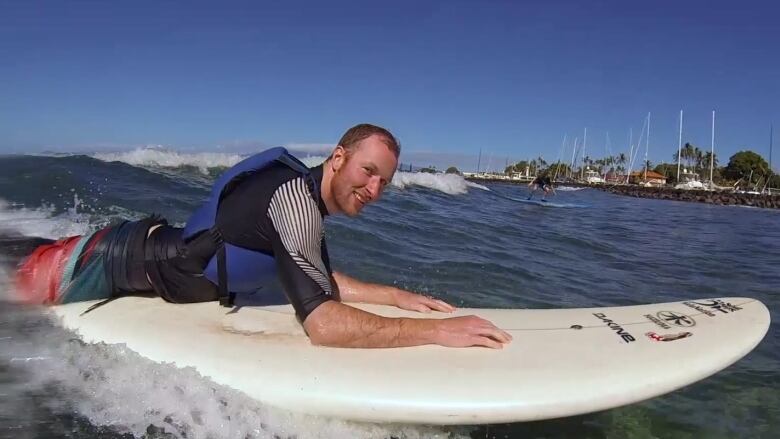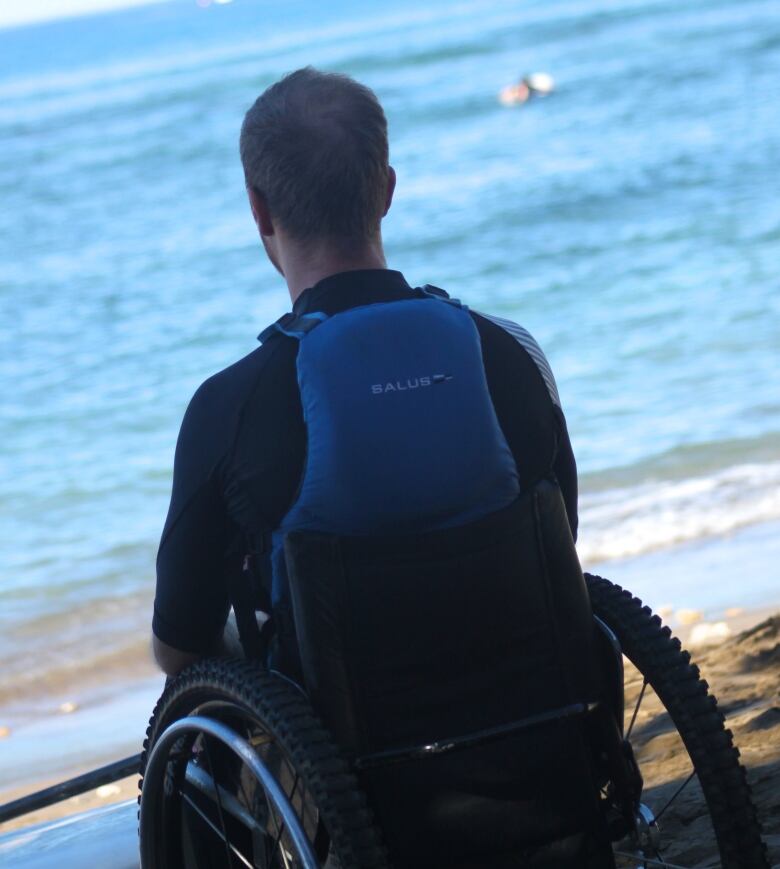Yukoner hopes to be among Canada's 1st Paralympic surfers
'For those few seconds of riding that wave, it's so worth it,' says adaptive surfer Darryl Tait

Yukoner Darryl Tait hopes to be one of the first athletes representing Canada in adaptivesurfing if the sport is successful in its bid to eventually become a Paralympic sport.
Surfing will be part of the Olympics for the first time in 2020, but adaptive surfing surfing for people with disabilities hasn't developed to a stage where it can be part ofthe Paralympics.
Tait said it's going to take a lot of increased participation and support to get to that point.
He had lots of experienceskateboardingand snowboarding prior to the snowmobile crash in 2009, that severed his spinal cord. A paraplegic after the crash, Tait learned adaptive surfing during a vacation in Hawaii.
"I'm like, 'man, this is funto be back on a board and the ocean,'" he said. "It's totally new for me."
There are several types of adaptive surfing, Tait said. He lies prone on the board in a push up position using handles for turning.

If he falls off, he's completely reliant on his upper body strength to retrieve the board and get back on.
"It's a lot of work, but for those few seconds of riding that wave, it's so worth it," he said.
Tait's ability grew enough that he was approached about joining Canada's national team.
He accepted that invitation this year and participated with financial support from Sport Yukon in the world championships earlier this month in Southern California.
"It felt really amazing just to be doing the sport, and then it was another thing to be representing Team Canada on its own. [I]was just kind of like, 'ho, this is a bigger picture,'" said Tait.
More than 100 athletes from 26 nations were there.
Taitexplainedsome athletes had paralysis like him, while others had different levels of injury, amputation and other forms of disabilities.
"But the overall picture is we've all overcome it and we're there as an athlete."
He said for now he's still on the national teamand wants to remain "in on the ground floor," helping build the sport to get it to Paralympic status.

Tait said the biggest challenge he's faced in adaptive surfing is the water.
"The ocean has taught me that you can't conquer it."
He said the sports he's previously done like mountain biking and snowmobiling are "all about dominating the situation" and being aggressive.
"When I applied that into the ocean, the ocean really teaches you a lesson of like you're not in control out here and it will hammer you," said Tait.
"And eventually, it's just learning that respect of the ocean, and putting things into perspective of 'all right, I will take what you give me,' and that was a very humbling experience for me."












_(720p).jpg)


 OFFICIAL HD MUSIC VIDEO.jpg)
.jpg)



























































































